Epsom salt is another name for magnesium sulfate, has caught the attention of many people today, especially in gardening circles, because of its potential benefits to a variety of plants such as zucchini. Magnesium is a crucial secondary nutrient in plants that plays an important role in plant physiology by contributing to processes like photosynthesis, enzyme function and nutrient uptake. The main focus of this article is to discuss the pros and cons associated with using Epsom salt in zucchini cultivation based on scientific evidence as well as practical experiences, so as to determine how effective it may be. It will also explore the effects of Epsom salts on soil health, nutrient accessibility, and potential growth improvements, thereby providing inclusive knowledge for readers to make informed choices about introducing Epsom salt into their garden practices.
Why Should You Use Epsom Salt in Your Garden?
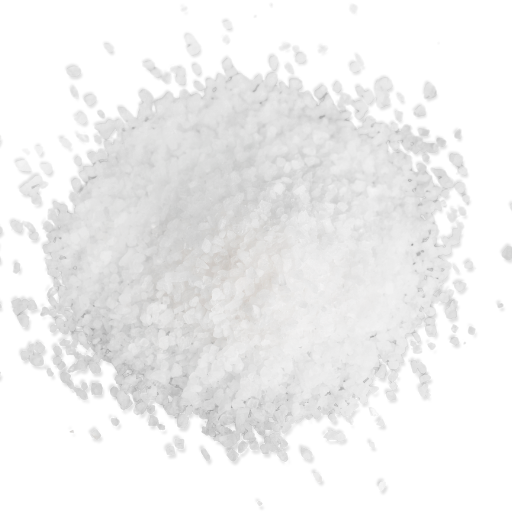
Primarily, Epsom salt is used in gardening for its magnesium component which is a critical element for the growth of plants. Chlorophyll, which is a molecule that allows photosynthesis, depends on magnesium, which makes it a green pigment found in plants, therefore making them change sunlight into energy. Additionally, it helps with nitrogen and phosphorus absorption from the soil as necessary nutrients. Moreover, when there are cases of yellowing leaves and slow growth can be prevented by application of Epsom salt to assist in seed germination, fruit setting and prevent deficiency signs.
What are the nutritional values of epsom salt?
Epsom salt majorly contains magnesium sulfate (MgSO₄·7H₂O). This particular compound provides both Mg (magnesium) and S(sulfur), essential plant nutrients. Magnesium plays a vital role in chlorophyll because it assists in absorption of light energy during photosynthesis. Furthermore, it activates several enzymes necessary for plant growth and contributes to the production of carbohydrates such as sugars, proteins, and oils. On the other hand, sulfur forms part of amino acids and vitamins, hence being significant for protein formation and general plant wellness. The common rates for using Epsom salts in horticulture are about one tablespoon per gallon of water when applied as foliar sprays or one-two tablespoons per plant if applied to the soil directly thus ensuring optimum distribution of these elements to sustain development.
How does epsom salt improve soil quality?
This is because Epsom salt generates more supply of sulfur together with magnesium components necessary for growing plants within it apart from having some ions through which cations may freely move through its layers up to roots present within it. Magnesium contained in Epsom salts aids in decomposition giving way to humus formation hence enriching soils with organic matter.Cation exchange capacity (CEC) will explain how much nutrient a soil can hold, as the higher the CEC value, the more nutrient it can hold. Sulfur in Epsom salts helps lower pH in alkaline soils and makes nutrients readily available for plants. Optimum nutrient profile is achieved from applying Epsom salt at recommended application rates of 1-2 tablespoons per plant or 1 tablespoon per gallon of water when used as a foliar spray hence promoting good growth of plants and fertility levels.
How to Use Epsom Salt for Zucchini Plants?
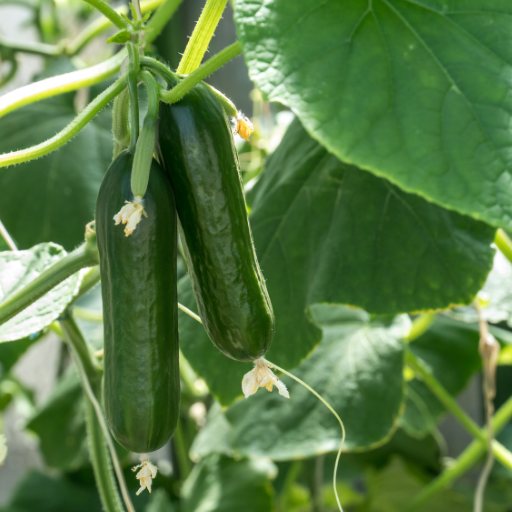
When it comes to zucchini plants, Epsom salt can be applied as a soil amendment or as a foliar spray. When applying it to the soil, mix in 1-2 tablespoons of Epsom salt around the base of each plant during planting or early growth stages: These will assure that enough magnesium and sulfur is available for its roots’ nourishment. A foliar spray can be done by dissolving 1 tablespoon of Epsom salt in a gallon of water; from there, the solution may be sprayed directly on the leaves. This method enables rapid absorption and can be repeated every two weeks throughout the growing season in order to keep nutrient levels consistent and improve overall plant health and productivity.
What is the proper application method?
Proper application method depends on whether Epsom salt acts as a soil amendment or foliar spray when used for gardening purposes. For soil application, mix in 1-2 tablespoons of Epsom salt into the soil around base/ per hole/plant at planting time or during initial growth stages: This enhances root uptake of magnesium and sulfur which improves nutrient availability. Foliar sprays are accomplished by dissolving 1 tablespoon of Epsom salt in a gallon of water and spraying directly onto leaves. Continuous use over such frequency ensures availability of nutrients direct through foliage uptake hence faster delivery per unit area.
The effectiveness of Epsom salt as a soil amendment is due to its high solubility which allows quick releases into soils, thus readily absorbed by plant roots (magnesium and sulfur). At 20°C (68°F), this compound has a solubility level of 710 g/L that makes it an instant source for these essential nutrients. Direct applications like this one bypasses any variations in nutrients between soils so their deficiencies can be efficiently addressed by stomatal openings within seconds when used as foliar sprays.
How much epsom salt should you use?
Mix 1 tablespoon of Epsom salt in a gallon of water for general use and apply by spraying directly on the plant leaves every two weeks. For soil applications, spread 1-2 tablespoons of Epsom salt across every nine square feet of soil, dispersing it uniformly around the base of plants. The amounts depend on plant specific needs and soil conditions. Always do a soil test to determine initial magnesium levels and to avoid over-application.
When is the best time to apply epsom salt?
Depending on the type of plant and its growth stage, Epsom salt should be applied at different times. The early growing season is generally best for most plants; this is when they have the highest demand for magnesium and sulfur required for vital physiological processes. In particular:
- During Planting: Mixing Epsom salt into soils at planting ensures that young seedlings will have access to essential nutrients immediately after germination has occurred. For general soil application, put 1-2 tablespoons per hole or per 9 square feet.
- Early Growth Stages: Spraying Epsom salts can encourage strong growth as plants become established. This can be done every two weeks by foliar spray, using a mixture of 1 tablespoon per gallon of water.
- Before Flowering: Plants need additional magnesium to develop their flowers and fruits before flowering starts as such than other periods (Webster & Lefroy, 2006). Thus applying fertilizers via foliar spray or through direct addition into soils would be very useful during this time period
The timings were designed to ensure that plants get nutrients during the periods when they are most needed, thereby enhancing overall growth and production. The application of fertilizers must be altered basing on particular nutritional requirements of plants and also the soil analysis outcomes that help in preventing excesses and deficiencies of plant nutrients.
Can Using Epsom Salt Prevent Common Zucchini Plant Problems?
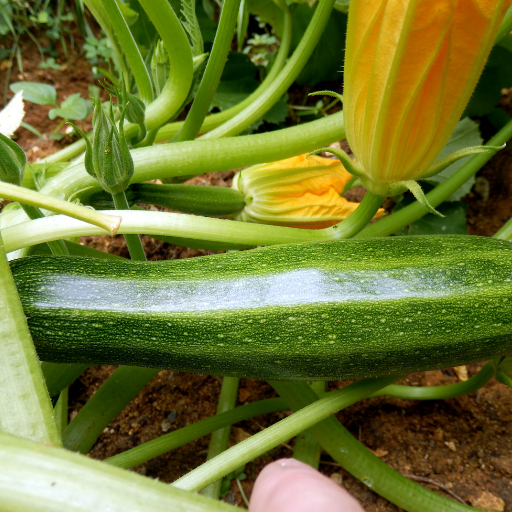
Certainly, the use of Epsom salt can help minimize common problems associated with zucchini. It is a magnesium sulfate that supports growth by increasing photosynthesis, helping plants to take up nutrients and water efficiently. Zucchini plants with little magnesium usually show yellowing leaves or stunted growth; in such cases, application of Epsom salts often helps alleviate these symptoms. Regularly adding Epsom salt into soil and/or using it as foliar spray can prevent blossom end rot which is caused by calcium deficiency resulting in sunken leathery spots on fruit. Moreover, it deters spider mites from your crops by hardening plant cells making them less prone to attack.Nevertheless, it should be used properly and in combination with other gardening practices for best results.
Does it work for pest control?
Epsom salt will assist in pest control because this mineral enhances cell walls’ strength so that they become harder for bugs like spider mites to penetrate through when attacking the crops. Furthermore, having about 10% sulfur content per 100 kilograms of dry matter makes this fertilizer beneficial in ensuring overall good health of crop plants against pests. However, as helpful as this might sound, Epsom salts are not reliable enough to be used alone as a means of pest deterrent. It should be combined with other methods of pest control and proper gardening practices at large in order to effectively repel pests.
Can it prevent nutrient deficiencies?
Actually yes! That is why Epsom salt could be useful when applied to plants to avoid the shortage of main nutrients such as magnesium and sulfur ions within vegetable world most importantly. This is due to the fact that according some leading sources there exists a direct relationship between chlorophyll –the pigment responsible for photosynthesis- and magnesium content Chromagenic or similar interveinal chlorosis indicates lack of Mg while veins turn greenish while leaves become yellowish respectively indicating low levels of its presence within the plant. This condition can be promptly rectified by a simple foliar spray or soil drench using Epsom salts, applied at 1 tablespoon per gallon of water.
- Application Rate: 1 tablespoon per gallon of water.
- Application Method: Foliar spray or soil drench.
- Frequency: Every 2-4 weeks during the growing season as needed.
Moreover, plants need sulfur – another component of Epsom salt – for protein synthesis and enzymatic reactions. Most soils contain enough sulfur due to its deposition from air but some conditions and types of soils may result into sulfur deficiency. Where a quick source is desired for development to take place faster in your crops, this can be done by adding this supplement.
Effects of Epsom Salt on Soil pH and Other Plants in the Vegetable Garden
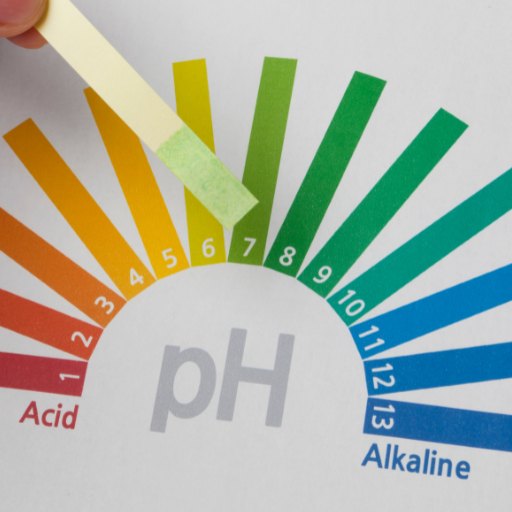
Epsom salt, which means that its pH is neither strongly acidic nor alkaline and thus it cannot change the pH of the soil significantly. For example, in a vegetable garden this will not alter soil’s pH level. However, minor swings in soil pH can have a large impact on the availability and absorption of nutrients by plants; therefore monitoring of the soil’s pH regularly is necessary. Epsom salt goes beyond vegetables to benefit many other types of garden plants such as tomatoes, peppers or roses as it supplies them with ample magnesium and sulfur which increase their growth rate and brightness. Proper application of Epsom salts and regular monitoring is important to make sure that its advantages are obtained without altering the natural balance of soils.
What effect does epsom salt have on soil ph?
The Common name for Magnesium sulfate (MgSO₄) is epsom salt. Epsom Salt has a neutral pH, meaning that when added to soil, it does not affect the balance of pH naturally.
- Neutral pH (7.0): Epsom salt’s normal pH is approximately 7.0, so adding it to soils usually does not make them more acidic or alkaline; consequently, this neutrality ensures that there is no interference with existing levels of acidity/alkalinity in soils.
- Soil Interaction: When applied to the ground, Epsom salts dissolve into magnesium (Mg²⁺) and sulfate (SO₄²⁻) ions which do not significantly alter overall acidity or alkalinity from reacting with minerals in soils or organic matter.
- pH Monitoring: Although Epsom salt may not change soil pH directly, constant vigilance should be maintained over time. Soil type, current nutrient status as well as external inputs could still influence changes in pH values. Regular use of a pH meter or test kit will help keep plants healthy through suitable conditions for optimum growth.
Hence, according to detailed analysis, adding Epson salt is an effective means of providing nutrients without affecting soil pH as long as it is used appropriately and the soil pH level is regularly checked.
Is Epsom salt good for other plants like tomatoes and cucumbers?
Yes, Epsom salt can be applied beneficially to some plants including tomatoes and cucumbers. Magnesium deficiencies in tomatoes, which can manifest themselves through yellowed leaves and reduced fruit production are often corrected with Epsom salts. This helps to produce more chlorophyll due to its magnesium component thus promoting photosynthesis hence general growth of the plant. Similarly, cucumber growth relies on adequate amounts of magnesium provided by Epson salt. However, the rate of application should be followed as high quantities may cause nutrient imbalances that harm these plants.
Comparing Epsom Salt with Other Additives: Which is Better for Zucchini Plants?
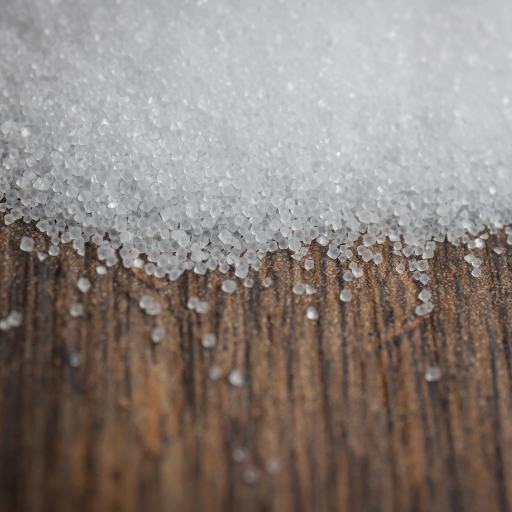
When comparing Epsom salt with other common soil additives for zucchini plants, there are several key points to consider. First of all, Epsom salt is mainly valued for its magnesium sulfate content that can handle the deficiency of magnesium and thus promote the leaf production and an improved photosynthesis. However, unlike Epsom salts, other such additives as composts, manure, or special fertilizers contain more nutrients. For instance, compost provides a well-structured soil with a balanced macro- and micro-nutrient mixture while manure boosts nitrogen levels greatly needed for plant growth. Most commercial zucchini fertilizers include a specific blend that suits the nutritional requirements of these plants which provides them with a balanced feed of nitrogen (N), phosphorous (P) and potassium (K). Therefore, though it can be useful in some cases as mentioned above especially in low magnesium soils where they grow together with others like manure or compost apply a combination so that there is high benefit on the health of the zucchini plants.
Is Epsom Salt different from egg shells?
Comparing Epson salt against eggshells as soil additives for zucchini plants necessitates delving into several technicalities. This substance also contains magnesium sulphate, which, when absorbed by plants, will help in chlorophyll production and enhance photosynthesis rates. For a better result, 1-2 tablespoons diluted in water per plant every month should be applied.
Egg shells, on the other hand, contain higher amounts of calcium carbonate, which acts as a slow-release calcium source.For example, root development, cell wall strength, and fruit quality may be influenced by a sufficient calcium supply to a zucchini plant. Calcium nitrate, once crushed finely, could be mixed into soil or used as mulch, too.
Usually, it takes at least a few months before these pieces get decomposed, releasing calcium into the ground; hence, they are not immediate solutions to this challenge.
Calcium nitrate or epsom salts?
If we compare Epsom salt and calcium nitrate as soil additives, they both have distinct purposes because of their unique composition. Calcium nitrate, which is composed of both nitrogen and calcium, is particularly useful in zucchinis because it can prevent blossom-end rot resulting from calcium deficiency. It also stimulates leaf growth through nitrogen content. Recommended application rate is one tablespoon dissolved in a gallon of water applied at the base every 1-2 weeks.
Since Epsom salts are specifically good sources of magnesium supplementation, it is considered to be beneficial for this purpose. As already mentioned above that helps in chlorophyll production and thus improving photosynthetic efficiency. These two combined allows india to cater for both shortages in calcium and nitrogen when corrected using Epsom Salt hence a more balanced approach must be taken so as not result into nutrient imbalance.However, care should be taken as too much use may create imbalances in nutrient levels.It is by taking this approach that zucchini plants will obtain the complete nutrient profile needed for robust health and high productivity.
Practical Tips for Using Epsom Salt in Your Home Garden
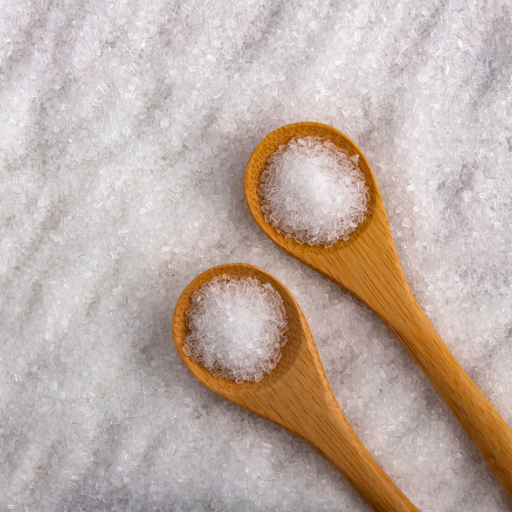
Several practical tips can optimize the effectiveness of incorporating Epsom salt into your home garden. Firstly, a soil test to determine the level of magnesium should be carried out before applying it to ensure that the nutrients are important enough. Furthermore, soaking seeds in a solution of one tablespoon of Epsom salt per gallon of water for 4-6 hours before planting can improve their germination rates. Besides, Dissolve one tablespoon of Epsom salt per gallon of water and use as foliar spray or apply directly on soil each two to four weeks during growing season for well-established plants. This helps in promoting healthy growth and improving photosynthesis.
Additionally, concentrated solutions may be needed for plants manifesting symptoms such as green veins with yellowed leaves, which are indicative of magnesium deficiency. Another method is spreading granules around the base of plants. A cupful of Epsom salt should be added to every square foot area while doing general gardening work. Ensure thorough watering after application to help dissolve and get the salts down to the roots.
How To Prepare An Epsom Salt Solution
- Materials Needed:
- Epsom salt (magnesium sulfate)
- Water
- Measuring spoons
- Spray bottle or watering can
- For Seed Germination:
- One tablespoon of Epsom salt dissolved in one gallon of water.
- Soak seeds for 4-6 hours prior sowing.
- This enhances more robust seedling development by providing essential ions required by young developing plants, including magnesium and sulfate.
- For Established Plants:
- One tablespoonful dissolved in a gallon’s worth of water.
- Apply this at intervals ranging from two weeks up to once a month either on the leaves or at root zone starting at flowering stage.
- Nutrients are absorbed faster if sprayed on leaves direct (foliar spray).
- To enhance root absorption pour such solutions at plant bases (soil drench).
- Addressing Magnesium Deficiency:
- If magnesium deficiency is indicated, for instance, if leaves are turning yellow with the veins remaining green (interveinal chlorosis), a higher concentration must be made.
- Two tablespoons for every gallon of water whereby Epsom salt can be dissolved in such finished product.
- Applying this solution once each month on affected plants relieves them from such problems.
- Higher concentrations instantly correct this nutrient problem leading to improved chlorophyll formation and stronger plants.
- General Maintenance:
- Granulated Epsom salt can be spread directly around plant bases for blanket garden applications.
- For general gardening purposes, use one cup of Epsom salt per 100 square feet of soil and mix it into the soil during planting season.
- After using it on powdered fertilizers, make sure that you water thoroughly so that the granules dissolve and all parts of the root system receive minerals uniformly in the soil application exercise.
Best way to achieve the same results every time
When using Epsom salt in gardening, it is therefore important to monitor the pH and nutrient levels of the soil regularly. Before you apply Epsom salts, it is essential that you have your soil tested so that magnesium levels can be accurately determined, reducing risks of over or underuse. Integrating Epsom salt applications with a balanced fertilization schedule can help maintain nutrient balance. After application watch plant response and change the amount applied from time to time depending on specific requirements. The most efficient dissolving and absorption of magnesium by the roots are achieved when plants are watered well after each Epsom salt application. Lastly, keeping records of dates when treatments were applied and state of plants can assist one in adjusting future treatments for optimal plant health.
Frequently Asked Questions (FAQs)
Q: What are the benefits of using Epsom salt in the garden, particularly for zucchini plants?
A: Epsom salt can provide essential nutrients like magnesium and sulfur to zucchini plants. These elements are crucial for the plant’s growth and overall health, leading to stronger and more productive plants. Epsom salts contain magnesium, which can help in photosynthesis and sulfur that aids in nutrient absorption.
Q: How do I add Epsom salts to my zucchini plants?
A: To add Epsom salts to your zucchini plants, dissolve 1 tablespoon of Epsom salt in 1 gallon of water. Use this solution to water the base of the plants once a month. This method ensures that the nutrients are adequately absorbed by the garden soil and reach the roots directly.
Q: Can Epsom salt help with blossom end rot in tomatoes and other plants?
A: While Epsom salt can provide magnesium, which is beneficial for many plants, it is not a cure for blossom end rot in tomatoes or other plants. Blossom end rot is typically caused by a calcium deficiency and inconsistent watering. Using calcium sources like crushed eggshells and ensuring even soil moisture can help with this issue.
Q: Should I use Epsom salt around plants other than zucchini?
A: Yes, Epsom salt can be beneficial for many plants, including tomato plants, squash, and peppers. It helps in enhancing nutrient uptake and improving plant vigor. However, it should be used in moderation to avoid nutrient imbalances.
Q: How do I prepare Epsom salt solution for larger gardens?
A: For larger gardens, you can prepare a more extensive solution by dissolving 1 cup of Epsom salt in a 5-gallon bucket of water. This ratio helps in maintaining the appropriate concentration for effective use without over-applying.
Q: Are there any risks associated with using Epsom salt in my garden?
A: Overuse of Epsom salt can lead to an accumulation of magnesium in the soil, which may cause a nutrient imbalance and negatively affect plant growth. It is essential to follow recommended guidelines and monitor plant health regularly. If unsure, consult a gardener for personalized advice.
Q: What other garden practices should I consider when growing zucchini?
A: In addition to using Epsom salt, maintaining good garden soil health, regular watering, and proper spacing are crucial for growing healthy zucchini. Incorporating organic matter and using vertical tier systems can also enhance plant growth and productivity.
Q: Can I use Epsom salt to improve the growth of other vegetables and fruits?
A: Absolutely, Epsom salt can be used to enhance the growth of various vegetables and fruits, including growing tomatoes, peppers, and even roses. It helps in providing essential nutrients that many plants require for optimal growth.






